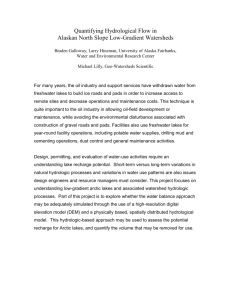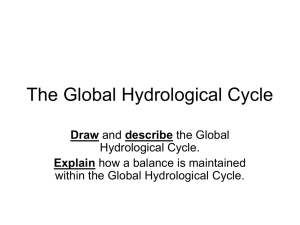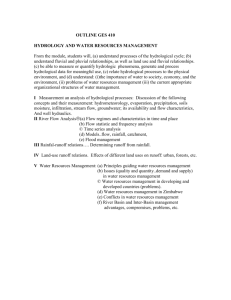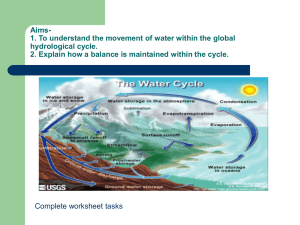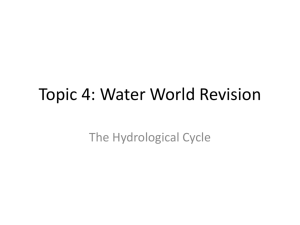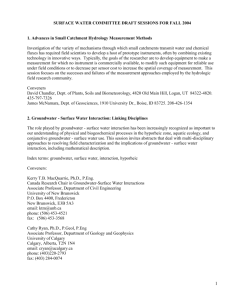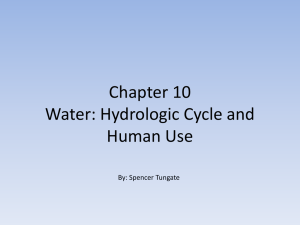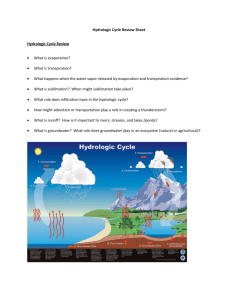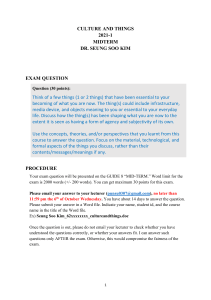Environmental Justice & Freshwater Resources Rubric
advertisement
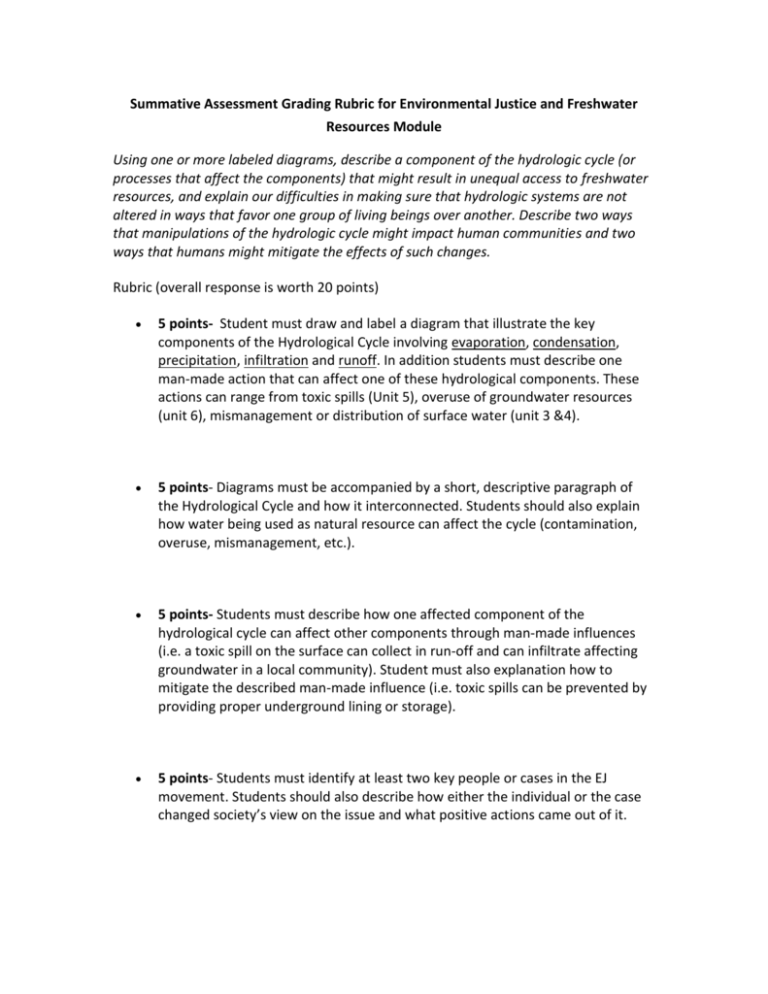
Summative Assessment Grading Rubric for Environmental Justice and Freshwater Resources Module Using one or more labeled diagrams, describe a component of the hydrologic cycle (or processes that affect the components) that might result in unequal access to freshwater resources, and explain our difficulties in making sure that hydrologic systems are not altered in ways that favor one group of living beings over another. Describe two ways that manipulations of the hydrologic cycle might impact human communities and two ways that humans might mitigate the effects of such changes. Rubric (overall response is worth 20 points) 5 points- Student must draw and label a diagram that illustrate the key components of the Hydrological Cycle involving evaporation, condensation, precipitation, infiltration and runoff. In addition students must describe one man-made action that can affect one of these hydrological components. These actions can range from toxic spills (Unit 5), overuse of groundwater resources (unit 6), mismanagement or distribution of surface water (unit 3 &4). 5 points- Diagrams must be accompanied by a short, descriptive paragraph of the Hydrological Cycle and how it interconnected. Students should also explain how water being used as natural resource can affect the cycle (contamination, overuse, mismanagement, etc.). 5 points- Students must describe how one affected component of the hydrological cycle can affect other components through man-made influences (i.e. a toxic spill on the surface can collect in run-off and can infiltrate affecting groundwater in a local community). Student must also explanation how to mitigate the described man-made influence (i.e. toxic spills can be prevented by providing proper underground lining or storage). 5 points- Students must identify at least two key people or cases in the EJ movement. Students should also describe how either the individual or the case changed society’s view on the issue and what positive actions came out of it.

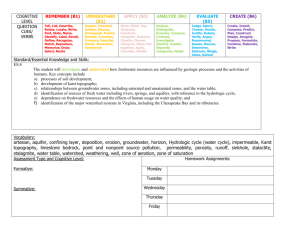
![Job description [DOC 33.50 KB]](http://s3.studylib.net/store/data/007278717_1-f5bcb99f9911acc3aaa12b5630c16859-300x300.png)
